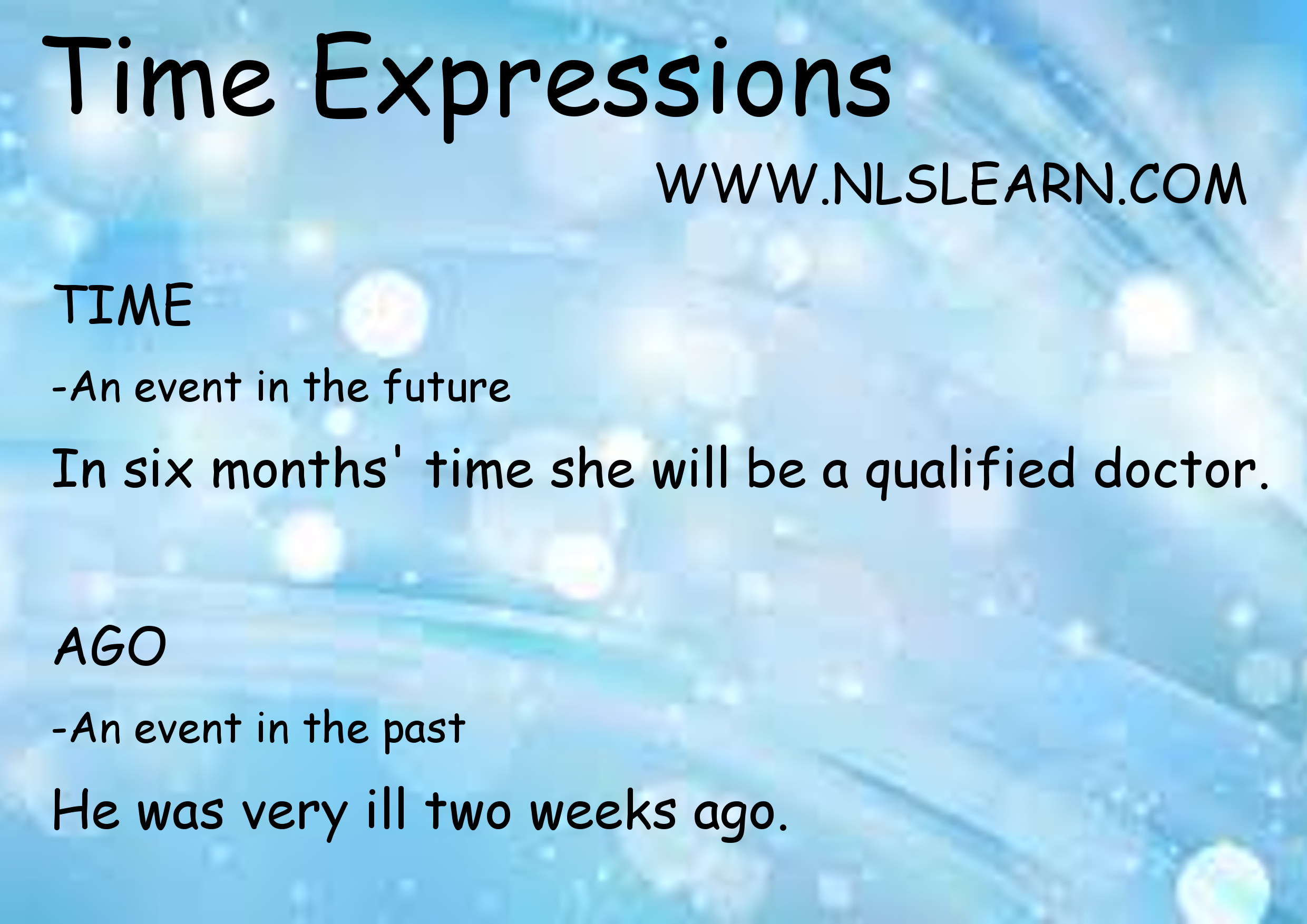Mastering Time Expressions: "Time" and "Ago" in English

Understanding and using time expressions like "time" and "ago" correctly is essential for effective communication in English. At NLS Learn, we provide comprehensive lessons to help you speak and write with confidence.
What are Time Expressions?
Time expressions are words or phrases that indicate when something happens. Two common expressions are "time" and "ago", which are used to refer to points in the future and the past, respectively.
Using "Time" in the Future
Expressions with "time" are often used to talk about future events. Here are some examples:
- In two years' time: Refers to a specific point in the future, exactly two years from now.
- In five years' time: Indicates a point five years from now.
Example: "In two years' time, I will have graduated from university".
Example: "In five years' time, I hope to have travelled to several new countries".
Using "Ago" in the Past
"Ago" is used to indicate how long before the present moment something happened. Here are some examples:
- Two years ago: Refers to a point in the past, exactly two years before now.
- Five years ago: Indicates a point five years before the present moment.
Example: "I started learning English two years ago".
Example: "Five years ago, I moved to a new city".
Practical Tips for Using "Time" and "Ago"
1. Future Events with "Time":
- Use "in [number] years' (days'/weeks'/months') time" to specify a point in the future.
- Combine with other future expressions like "next year" or "next month."
Example: "In ten years' time, I plan to have a successful career".
Example: "In a year's time, I will be living in another country".
2. Past Events with "Ago":
- Use "[number] years (days/weeks/months) ago" to indicate how long before now something happened
- Combine with specific time periods like "months," "days," or "weeks".
Example: "Three years ago, I visited Japan for the first time".
Example: "Six months ago, I started a new job".
Common Mistakes to Avoid
Avoid saying "two years in the future" instead of "in two years' time".
- Incorrect: "I will graduate two years in the future".
- Participate in practical exercises and activities to reinforce your understanding.
Ensure you use past tense with "ago" and future tense with "time".
- Incorrect: "I will graduate two years ago".
- Correct: "I graduated two years ago".
Understanding "In Time" vs. "On Time" in English
When discussing punctuality and timing in English, it's important to distinguish between "in time" and "on time." "In time" refers to arriving or completing something before a deadline or before it is too late. For example, "We arrived just in time for the movie to start." On the other hand, "on time" means being punctual according to a scheduled or expected time. For instance, "She always arrives at work on time." Mastering these time expressions can enhance your clarity and precision in both spoken and written English. Understanding how to use "in time" and "on time" correctly will improve your ability to communicate effectively and avoid common misunderstandings related to timing and deadlines.
Time Expressions - Word Search
- TIME
- AGO
- EVENTUALLY
- SINCE
- RARELY
- LATER
- FORTNIGHT
- NOON
Why Choose NLS Learn for Mastering Time Expressions?
- Expert Instructors: Learn from experienced teachers who specialise in English language instruction.
- Interactive Lessons: Participate in practical exercises and activities to reinforce your understanding.
- Personalised Learning: Receive lessons tailored to your individual needs and learning goals.
- Comprehensive Resources: Access a variety of resources, including guides, worksheets, and practice quizzes.
Get Started with NLS Learn
Ready to improve your English with time expressions? Join NLS Learn today and discover how to use "time" and "ago" accurately and confidently. Contact us now to book your personalised lessons and start mastering time expressions in English.




